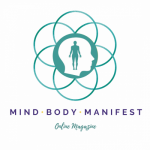
The Effect of Nutrition on Mental Health
Nutrition and Mental Health
Our eating habits can have a significant impact on our mental health and the way we experience the world. This is because our eating habits have a direct impact on our hormonal health, energy levels, our ability to be productive and concentrate, our digestive system, sleep patterns and can significantly influence the risk of developing conditions such as type 2 diabetes and cardiovascular disease.
Diets that are very restrictive, or that omit certain types of foods or food groups without appropriate guidance or advice, can lack essential vitamins and minerals, which can lead to micronutrient deficiencies that can affect our mood, brain function and mental health.
When we think about nutrition and mental health, micronutrients such as iron, b vitamins and folate often spring to mind. But don’t underestimate the power of having a healthy balanced diet as the most fundamental aspect of staying healthy.
Vitamins, Minerals and Mental Health
Iron and Mental Health
Iron is a mineral found in our blood and it helps carry oxygen around the body. If we have low levels of iron in our diet or poor absorption from the gut, this can lead to iron-deficiency anaemia, which can negatively impact our mental health, leaving us feeling weak, tired, breathless and lethargic.
Good sources of iron include green leafy vegetables such as watercress, kale and spinach, pulses such as lentils, kidney beans, baked beans and chickpeas, a variety of nuts and seeds, meat, poultry, oily fish and eggs.
It is harder to absorb iron from plant-based foods. Vitamin C found in foods such as strawberries, kiwi fruit, green leafy vegetables and potatoes can help increase iron absorption from plant-based sources. Vitamin C can be lost from foods during the cooking process. By steaming vegetables and using minimal amounts of water, you can help minimise any losses that occur during cooking.
Tea and coffee contain a substance called tannins, which can reduce iron absorption from food. If you want to maximise your iron intake from food, try to avoid drinking tea and coffee with meals. In some cases, iron supplements may be prescribed.
B Vitamins and Regulation of Mood
B vitamins are important in helping us break down and release energy from foods to be used as fuel by the body. B vitamins including Vitamin B1 (thiamin), Vitamin B3 (niacin), Vitamin B12 (cobalamin) and folate are important in helping to regulate mood. A deficiency in these B vitamins can lead to significant mood problems including fatigue, difficulty concentrating, irritability and depression.
Vitamin B1 (thiamin) is found throughout the diet, including in fortified cereals, beans/peas, nuts, bananas, oranges, fresh vegetables, meat, poultry and dietary supplements. Coffee, black tea and alcohol can reduce thiamine absorption from foods.
Folate/folic acid deficiency can also increase our chances of feeling depressed, particularly in older people. Natural sources of folate can be found in green vegetables, oranges and citrus fruits, liver, beans and fortified cereals.
Selenium
Selenium is a mineral found in brazil nuts, seeds, meat, fish and wholemeal bread. Some studies suggest that low levels of selenium may increase the risk of feeling depressed. Although brazil nuts are a good source of selenium, eating too many can lead to overconsumption of selenium which can be harmful.
Carbohydrates: Source of Energy and Brain Power
Carbohydrates are found in foods such as fruits, vegetables, legumes, cereals, bread, rice, pasta and potatoes. Carbohydrates break down into glucose, a type of simple sugar, which then enters the bloodstream and can be used as energy by the body.
Our body can also make glucose, in a process called gluconeogenesis which takes place in both the liver and kidneys. Our brain uses glucose for energy, which can help us to focus and concentrate on day to day activities and tasks.
Healthier sources of carbohydrates include fruits, vegetables, legumes and whole grains, which are also a source of B vitamins that are important for mental health.
Portion sizes are extremely important, and choosing wholegrain or higher fibre options that digest more slowly can help keep us healthy, as they release glucose more slowly into the bloodstream.
This is important for maintaining safe, stable blood glucose levels, and can help avoid the sharp rise and falls in blood sugar levels that can negatively impact mood and mental health.
There has been a lot more research and publicity around lower-carb diets in recent years, particularly in relation to weight management and the management of type 2 diabetes.
It is worth noting that diets which suddenly or severely restrict carbs without appropriate assessment or guidance, can lead to feeling hungry, irritable, lethargic and tired. It can also trigger episodes of binge eating, disordered eating, low mood and depression as part of the binge-restrict cycle in those most vulnerable.
If you are concerned about or have any questions regarding carbohydrates, your blood glucose levels and health, it is always advisable to contact your GP or registered healthcare provider to discuss further for more tailored dietary advice.
Protein, Vegetables, Fibre and Feeling of Fullness
Both protein and fibre from vegetables play an important role in the regulation of our appetite, which can impact directly on our mood and mental health. Sources of protein include legumes, beans, lentils, vegetables, tofu, eggs, meat, fish, dairy and poultry.
Vegetarian sources of protein such as spinach, broccoli, green beans, cauliflower, cabbages and lentils are a good source of fibre, as well as a source of protein. Fibre is important for the feeling of fullness.
Including a source of protein and a variety of vegetables at mealtimes, can help regulate our portion size of carbohydrates at mealtimes and may also help reduce snacking between meals. This can also help regulate blood glucose levels, which is important for mental health and well-being.
Omega 3 Fats
Some studies suggest that including omega 3 fats as part of a healthy balanced diet may also help in alleviating low mood states and depression.
Sources of omega 3 fats include:
- white fish – but at much lower levels than oily fish
- oily fish such as salmon, mackerel, kippers, sardines, pilchards, herring, tuna (fresh or frozen).
- nuts and seeds such as walnuts, flaxseed, pumpkin seeds, chia seeds
- dark green leafy vegetables
Oily fish is also a good source of vitamins A, vitamin D and a source of protein. Including two portions of fish per week, at least one of which should be oily fish can help you benefit from omega 3 fats. It is important to limit oily fish to two portions per week if you are pregnant or planning a baby.
If you follow a plant-based diet, including sources of omega 3 fats such as nuts and seeds, dark green leafy vegetables and fortified foods can also be beneficial.
Summary
A wide variety of different vegetables, fruits, whole grains, peas, nuts, seeds and lentils are rich in a variety of nutrients including iron, b vitamins, selenium and zinc, which are important for mental health. They also digest more slowly and can help us to manage and maintain stable blood glucose levels.
Having a healthy balanced diet that includes a variety of vegetables, fruit, protein, healthy fats, fibre and fluid can help us to build and maintain habits that provide us with energy, nutrients and the essential vitamins and minerals needed to keep both our minds and body healthy.
Samantha is an online Nutrition and Weight Management Specialist with over 15 years of experience, who specialises in helping women (40+ age group) overcome emotional eating, reduce the risk of developing chronic illness and lose weight for good.
Samantha believes in a caring and inclusive approach to nutrition and behaviour change. With her warm, friendly and empathetic nature, she brings a sense of friendship, empowerment and fun to her online and daily support sessions, to help women reclaim their confidence, break free of yo-yo dieting and achieve permanent long-lasting results.
Contact details
Website: www.demeraradelight.com
Instagram: Samantha.Anne.Nutrition

